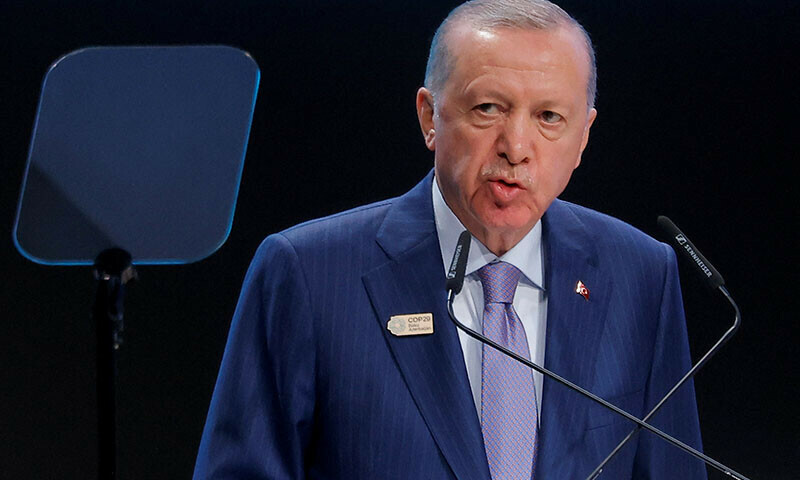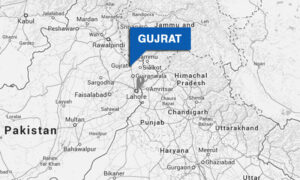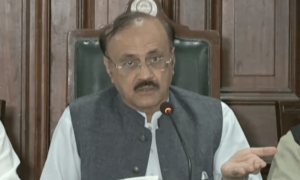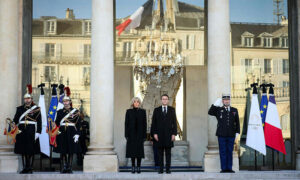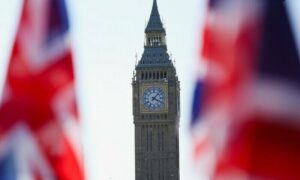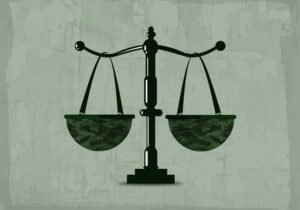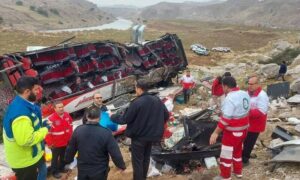Without doubt, Turkiye gave the strongest response to Israel’s atrocities in Palestine through such steps as halting trade, President Recep Tayyip Erdogan said on Wednesday.
Ankara suspended all trade with Israel in May, citing a worsening humanitarian tragedy in Gaza, where Israel has killed more than 43,000 Palestinians since last October.
“As long as arms shipments continue, Israel will be more aggressive, as every day that Israel is not stopped, the situation in Palestine and Lebanon worsens,” Erdogan told reporters on his return flight from visits to Saudi Arabia and Azerbaijan.
One of the concrete steps that can be taken against Israel’s attacks is to work for recognition of the state of Palestine, he underscored, adding: “Without a two-state solution, peace and stability will not come to the region.”
“Trade restrictions and sanctions on Israel are another form of struggle. Active diplomacy to corner Israel in all areas and boost diplomatic pressure is also crucial. We’re in the middle of a great test of humanity,” the president said.
“Passing this test is only possible by being part of the humanitarian alliance. Otherwise, history will judge both those who stood by Israel and those who remained silent in the face of oppression.”
Erdogan also said Ankara’s initiative at the UN to prevent the shipment of weapons and ammunition to Israel has been supported by 52 countries and two international organizations.
“We recently sent a letter on this initiative to the president of the UN General Assembly, the president of the Security Council, and the UN secretary-general. At the (joint Arab-Muslim) summit in Riyadh, a decision was made to invite all organizations and Arab League members to sign our letter. Our country’s steps to halt the massacre and its humanitarian aid efforts were praised,” he added.
The Turkish president also highlighted that he had the opportunity to hold bilateral meetings during the summit, including with Saudi Crown Prince Mohammed bin Salman, adding that they had a fruitful meeting.
Emphasizing that he also held bilateral meetings in Baku, Azerbaijan, during the COP29 UN Climate Change Conference, Erdogan said that these meetings included discussions of bilateral ties and regional developments.
‘Climate is one of the most critical issues facing world’
On Turkiye’s zero emissions target for 2053, Erdogan said: “The climate issue is one of the most critical issues facing the world. Just as we care about wars, conflicts, and migration, we approach this issue with the same seriousness.”
“Turkiye is persistently discussing what measures we can take with the relevant ministries. We have taken, are taking, and will continue to take measures to use the world’s limited resources most efficiently and to elevate the civilization we have developed over centuries to a much higher level.
“Turkiye cares about this issue and is making every effort to do our part. However, finding a fundamental and lasting solution to this issue is not possible with the efforts of just us or a few countries together.”
He called for collective action to shoulder the burden of climate-related efforts.
“If some countries fully engage in the fight against climate change while others, driven by greed, ignore necessary measures or even increase pollution, we cannot overcome this problem,” warned Erdogan.
President Erdogan added that the importance of the Zero Waste initiative, spearheaded by Turkiye, is gaining more recognition every day and that efforts are being made to spread it and turn it into a way of life.
The initiative, which started in 2017 under First Lady Emine Erdogan’s leadership, aims to raise awareness of the importance of waste elimination in addressing climate change.
Hope ties with US move to different track under Trump
“Undoubtedly, there are always opportunities between the two countries. Our basic expectation is to assess these opportunities and take steps that will benefit both countries,” he said.
“The Trump administration views the economy as one of its main priorities. Turkiye, with its strategic geographical location and young population, is a country that offers investment opportunities.
“We can create new opportunities to boost the trade volume and encourage investments between the two countries. Particularly in energy, infrastructure, and technology, we can develop new collaborations,” he underlined.
Erdogan also expressed hope that President-elect Trump would take different steps for the region.
Asked about potential future meetings with US billionaire Elon Musk, one of Trump’s biggest supporters, Erdogan said: “The technological strides Turkiye is making are drawing attention worldwide. Technology is not an area where you can advance alone; you need collaboration. If cooperation opportunities arise in this field, steps can be taken with Musk.”
Possible normalization between Turkiye, Syria
Cross-border operations are always in the cards for the country’s security, he said, expressing readiness to launch them anytime the country feels threatened.
Turkiye has launched several cross-border operations in recent years, in both northern Syria and northern Iraq, targeting terrorists who hide out there and destabilize the border or plot attacks on Turkish soil.
Reiterating Turkiye’s commitment to fighting terrorism while respecting Syria’s territorial integrity, Erdogan said that the presence of terrorist groups in northern Syria, notably the PKK, the PYD and the YPG, also poses a threat to its territorial integrity, adding that the Syrian government, well aware of this, must take steps to create a new climate in the country.
Erdogan also said the “threat of Israel,” right next to Syria, is no fairy tale, warning that the fire in the surrounding areas can quickly spread in the unstable lands.
In its 40-year terror campaign against Turkiye, the PKK — listed as a terrorist organization by Turkiye, the US, and the EU — has been responsible for the deaths of over 40,000 people, including women, children, and infants. The YPG is PKK’s Syrian offshoot.
In northern Syria, Ankara has launched a trio of successful anti-terror operations since 2016 to prevent the formation of a terror corridor and enable the peaceful settlement of residents: Euphrates Shield (2016), Olive Branch (2018), and Peace Spring (2019).

